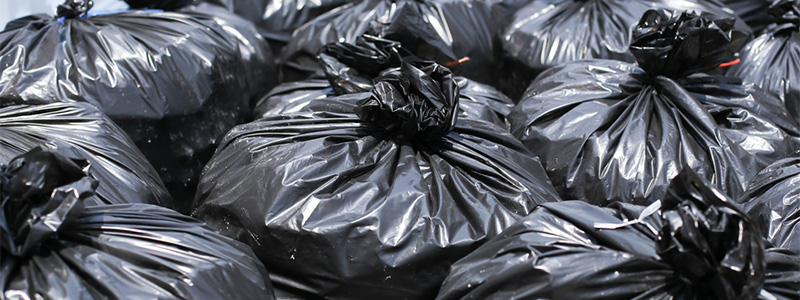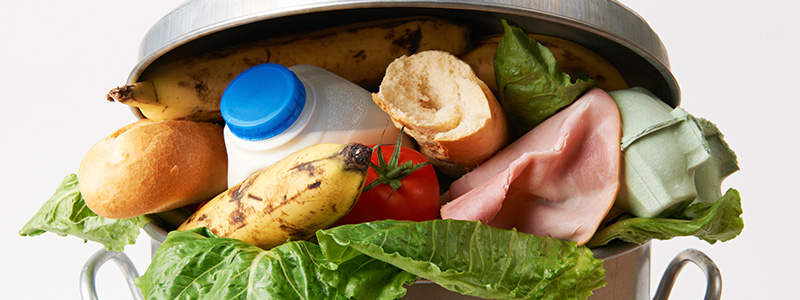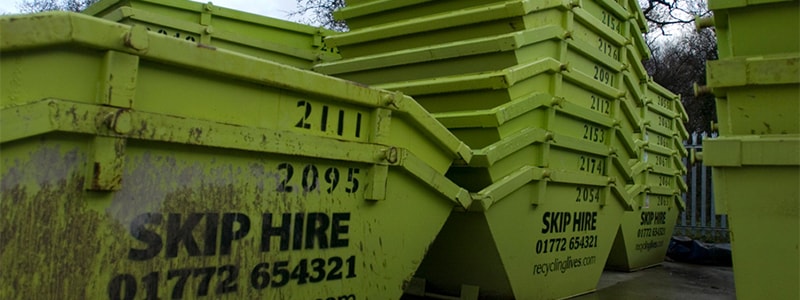
Tips On Storing Waste, Part 1: Solid And Food Waste
12th Sep, 2017
Hiring a skip is a pretty universal service, and one that many homeowners and businesses will find themselves needing to employ at some point in life. So – you’ve booked a skip, and you’re waiting for it to arrive. Maybe you’ve taken our advice on combining two projects together, which might mean you’re waiting a little longer than you usually would be. The question is, how do you store your waste safely and hygienically in the meantime? The good news is: at Skip Hire Network we’ve got lots of ways to answer that question. So many, in fact, that we’ve decided to split it over a two-part series so we can give you absolutely all the details you need. This week, we’re looking at the best ways of storing solid waste and food waste.
How To Store Solid Waste

This definition covers a pretty broad range of waste material, including anything from builder’s waste like bricks and masonry to office waste like paper and cardboard. Naturally, businesses will be the ones faced with more of the latter, while homeowners might find themselves more familiar with the former. Builder’s waste generally goes in a tidy pile anyway, so it’s mostly a matter of making sure that it doesn’t pose a tripping or slipping hazard to anyone nearby, which means storing it as out-of-the-way as possible. Cardboard and paper, meanwhile, is easier to deal with when it’s bound and weighted down, protecting it from being blown away by the wind.
A side-note that might not always be obvious; it’s worth taking a moment to make sure that your solid waste is protected from vandalism or theft. If you’re recycling metals, there are certain individuals who will find those valuable, and will happily help themselves to your waste pile without regards to safety or hygiene. To avoid this, it’s worth hiding more apparently valuable materials at the bottom of the pile – or even keeping them separate entirely.
Keeping Food Waste Clean And Tidy

Whatever the reason is for hiring a skip, businesses and homeowners alike always tend to produce a healthy amount of food waste. Disposing of it is generally a simple matter, but if you’re getting rid of an exceptionally large amount of it (say for example, after a catering event), it’s worth following that age-old rule: always double-bag it! Nobody wants to be the person holding a bag full of food waste when it splits, and it’s for this reason you need to make sure you’re not overfilling the bags either.
If you can, it’s a good idea to store the bags in solid containers – if your normal bins aren’t available, definitely find alternatives. While black bags themselves are generally pretty durable to start with, it’s still only one layer of plastic separating a mass of rotting food from the outside world. Trust us; it’s wise to give them every extra bit of protection they can get! As an added bonus, by storing the food waste away in solid containers you’re also helping to minimise the odours being released, which is one of the main causes of rodent infestations and other pests.
Even with all those measures in place, you should still store food waste for the shortest amount of time that’s realistically possible, to minimise the chances of bags splitting, pests arriving, or just generally the food becoming even more horrible than it was to start with.
Even More Reasons To Choose Skip Hire Network

Luckily, that’s where we come in at Skip Hire Network! We’ve carefully designed our website to be as easy, quick and user-friendly as possible. All you have to do is enter in your postcode and phone number, and it’s a simple matter from there to complete your booking.
We’ll be publishing Part Two of this series in the coming weeks, where we’ll be advising you on the best ways to store liquid and hazardous waste, as well as giving you a few extra general tips on safe, clean waste storage. Stay tuned for then!
Read part 2 in the series here.
Don’t forget to follow us on Twitter: @SkipHireNetwork